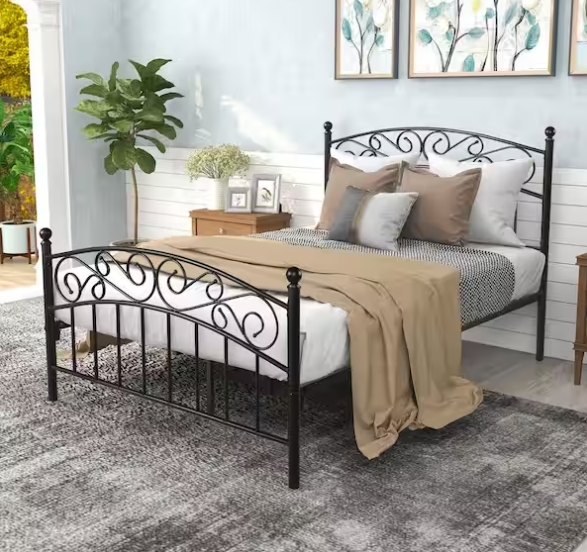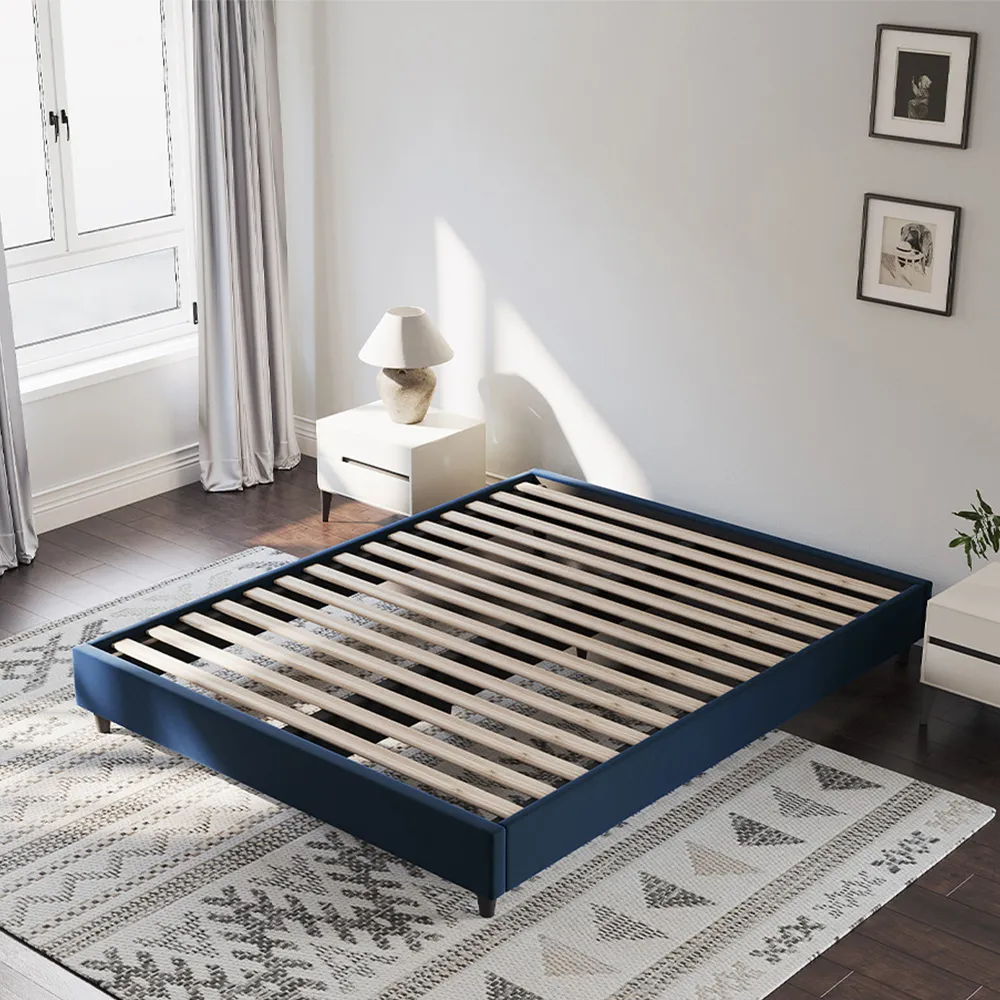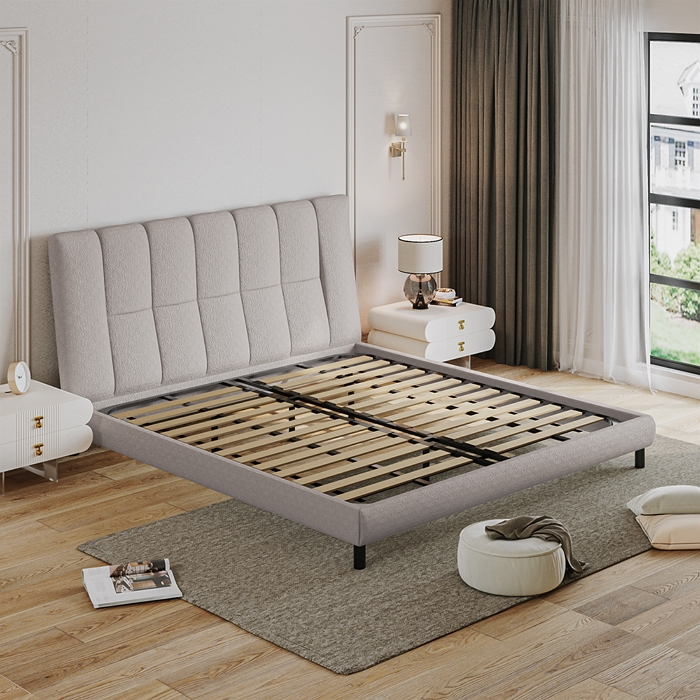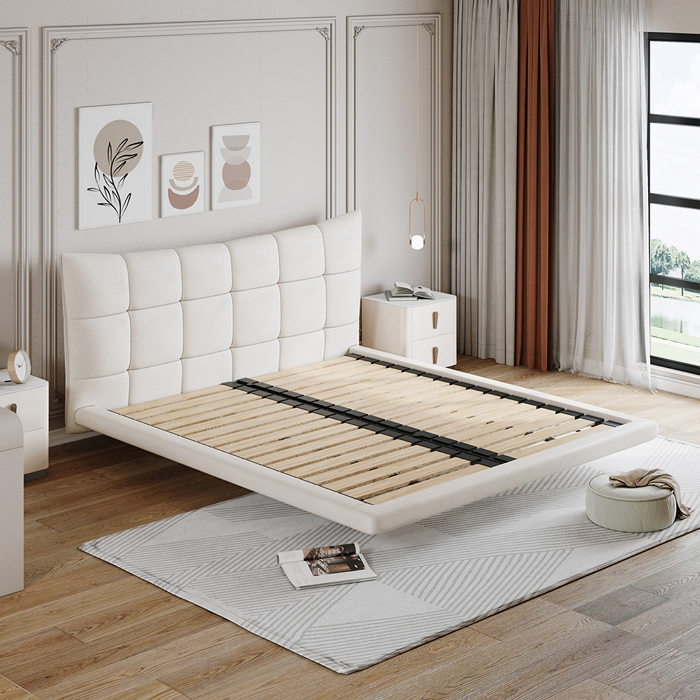Navigating the landscape of bed frame choices, the perennial debate between wood and metal unfolds. In the quest for the perfect night’s sleep, the pivotal question arises: “Which bed frame material truly elevates sleep comfort?” In this exploration, we dissect the intricacies of wood and metal, unveiling their unique attributes, guiding you towards the optimal choice for a restful sanctuary. The answer lies within the nuanced characteristics of these materials, each vying for a place in your realm of slumber.
Contents:
What Differences Between Wood and Metal Bed Frame?
How to Choose the Best Bed Frame Material for Greater Sleep Comfort?
What Differences Between Wood and Metal Bed Frame?
When you are looking for the ideal bed frame material, the choice between wood and metal holds paramount importance. Each material brings its unique set of characteristics that can significantly impact your sleep quality. Let’s delve into the differences between wood and metal bed frames, empowering you to make an informed decision tailored to your preferences.
1. Aesthetics and Style
Wooden bed frames exude timeless elegance, offering a warm and natural aesthetic. The grains and patterns in wood contribute to a classic, inviting feel in your bedroom. On the other hand, metal bed frames embrace modernity with sleek designs and versatile finishes. The choice here depends on your personal style preferences and the overall aesthetic you envision for your sleeping haven.

2. Durability and Longevity
Wooden bed frames are renowned for their solid construction and enduring nature. They often withstand the test of time, making them a durable investment. Metal bed frames, however, boast resilience and potential longevity. Consider the wear and tear your bed frame might endure and choose the material that aligns with your expectations for long-term use.

3. Temperature Regulation and Comfort
Wood, being a natural insulator, offers excellent temperature regulation. It keeps you warm in cooler months and cool during warmer seasons. Conversely, metal’s heat conductivity can pose temperature-related challenges. Depending on your local climate and personal preferences, understanding how each material contributes to temperature regulation is crucial for optimizing sleep comfort.
4. Environmental Impact
In the era of eco-conscious living, considering the environmental impact of your choices is vital. Wooden bed frames often boast sustainability and eco-friendliness, with the ability to be recycled or repurposed. Metal bed frames, too, can be environmentally friendly, especially when made from recycled materials. Making an environmentally conscious choice aligns your sleep sanctuary with your broader commitment to sustainability.
5. Maintenance and Care
Wooden bed frames may require more regular upkeep, with potential issues like scratches or dents needing attention. Metal bed frames, however, are often easier to maintain. Understanding the maintenance needs of each material can impact the overall care and longevity of your chosen bed frame.

6. Cost Considerations
Budget plays a crucial role in any decision-making process. Wooden bed frames, with their solid and enduring nature, may have a higher initial cost. Metal bed frames, while potentially more cost-effective initially, may have long-term considerations. Balancing your budget with the desire for quality and comfort is essential in the decision-making process.
How to Choose the Best Bed Frame Material for Greater Sleep Comfort?
Now that we’ve explored the differences between wood and metal bed frames, let’s delve into the process of selecting the best bed frame material for a restful night’s sleep. Consider the following factors to guide you towards making a decision that aligns with your unique needs.
- Personal Preferences and Style
Start by assessing your personal preferences in terms of aesthetics. Do you lean towards the timeless warmth of wood or the sleek modernity of metal? Consider the existing decor of your bedroom and how each material complements your style.

- Climate Considerations
Take into account the climate of your location. If you live in an area with extreme temperature variations, wood’s natural insulation may be advantageous. On the other hand, if you’re in a consistently warm or cold climate, metal’s conductivity may influence your decision.
- Long-Term Durability Needs
Evaluate your expectations for the longevity of the bed frame. If you’re seeking a timeless piece that can withstand the years, a wooden bed frame may be your best bet. If you prioritize resilience and potential longevity, a well-constructed metal frame could be the answer.

- Environmental Stewardship
For those committed to eco-friendly living, consider the environmental impact of your choice. Both wood and metal can be environmentally responsible options when sourced and manufactured responsibly. Look for certifications or information on sustainability to make an informed decision.
- Maintenance Commitment
Assess your willingness to invest time and effort into maintenance. If you prefer a low-maintenance option, a metal bed frame might be more suitable. However, if you enjoy the character that comes with some maintenance, a wooden frame could be a fulfilling choice.
- Budget Constraints
Finally, align your decision with your budget. While wooden bed frames may have a higher upfront cost, they often provide long-term value. Conversely, metal frames might offer initial savings but consider the potential for long-term costs and replacement.
Anyway, share your comfortable bed frame in the following comment. Let’s explore more bed frames for sleep comfort!